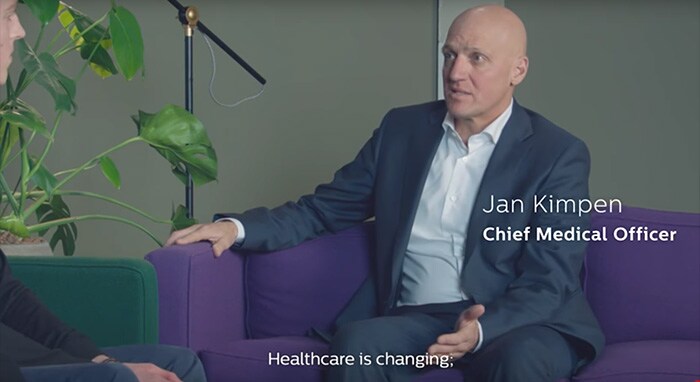The future of healthcare will affect every single one of us, so it’s key that we understand the innovations that are impacting our experiences. As a continuation of our annual #YoungWEF series, Philips is translating these innovations through the voices of our future, to highlight the exciting transformation that is happening in healthcare and how it can impact you. We live in an increasingly on-demand world. Thanks to digital technology, we as consumers can get what we want almost instantly. Tasks as disparate as booking a flight, ordering a meal or even finding a date have transformed over the past few years into the same seamless process. We’re used to technology solving problems and improving our lives, seamlessly. For most of us, however, our experience of healthcare is not yet at the same level. The effort and time it takes to schedule an appointment – which often has to be made via telephone – visit the doctor and then navigate a maze of follow-up appointments can be overwhelming. In many cases, these factors can mean we don’t seek out a healthcare professional when we need to, putting potentially important consultations off to a later date. This situation cannot last – and it won’t.

Telehealth – connected, patient-centered care
Telehealth – the provision of healthcare remotely through telecommunications networks – can extend the reach of healthcare to places like the home or the office. It’s got incredible potential to reduce patient waiting times and provide a service that fits with the pace and rhythms of modern life. This will involve consultations with your family doctor via a smartphone, but the truly transformative changes will come in follow-up processes, and in monitoring patients with chronic conditions remotely. At the moment, these patients still have to make regular journeys into the hospital for tests and check-ups, which may be stressful and time-consuming. Monitoring patients at homes remotely using smart devices may improve their quality of life greatly, providing a better patient experience combined with improved care and outcomes – that’s the future that telehealth points to. And indeed, 19% of healthcare professionals believe that greater access to doctors remotely, such as via video calls, will have the most positive impact on citizens of their country trying to take care of their health [1].
#PhilipsTranslates the hospital of the future with Sheetal (18) and Hidde (17). The students discuss exciting changes in the way we can experience healthcare with Philips CMO, Jan Kimpen. Philips is committed to helping improve the future of health for everyone through meaningful innovations.
The connected hospital
Of course, there will still be instances when we have to be treated in the hospital, and also there, smart connected solutions have transformative potential, for example in intensive care units (ICUs). Already today, hospitals can be equipped with advanced technology – combining software, clinical decision support algorithms and mobile connectivity – that allows clinicians to monitor multiple critically ill patients remotely, in real time. Through such a so-called eICU system, they can spot potential problems early and act on them faster than ever before, ensuring that fewer issues will spiral into life-threatening problems. This technology could also mean the end of something that has long been the bugbear of healthcare professionals – nightshifts. Recently, Philips has worked with two hospitals in Atlanta, Georgia and Perth, Western Australia on a new remote intensive care monitoring program that advances the globalization of critical care. With this system, daytime clinicians in Perth provide nighttime critical care support to patients in Atlanta, meaning a reduced nightshift burden for healthcare professionals there. We’re not far away from this kind of technology being commonplace. Hospitals in the near future will be safer for patients and better places for healthcare professionals to work. In the context of digitalization, healthcare will soon catch up, and – just like in every other area of our lives – digital technology will be fully integrated to give us a smoother, smarter experience that better fits our lives. [1] Future Health Index. (2017). FFQ4. Which, if any, of the following innovations in healthcare technology do you think will have the MOST positive impact on citizens of your country taking care of their health?














